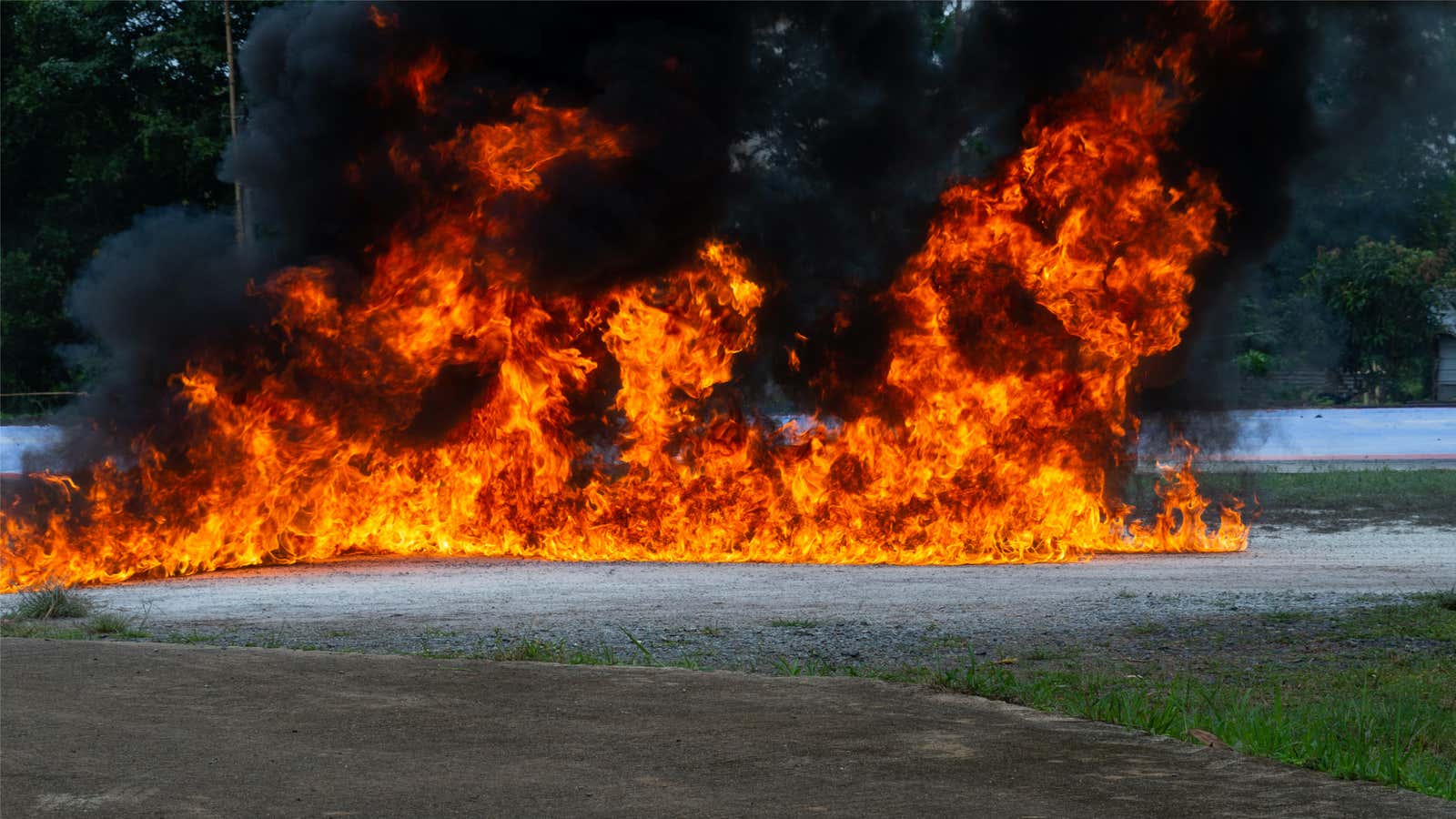For the Love of God, Please Do Not Put Gasoline in Random Containers.

Desperate times call for desperate action, but if your area is short on gas, that’s not a reason to refill your water bottles or, God forbid, plastic bags . Stock up on gasoline if necessary, but store it in suitable containers .
If you’ve ever interacted with gasoline by pumping it into a car, you can think of it just as some kind of magic juice that makes cars move. But it also has other physical and chemical properties. You probably know that it isincredibly flammable . It alsomelts plastic .
Why is it not designed to melt specially made plastic gas cylinders? Because not all plastics are the same. In fact, here’s a chart showing which plastics will withstand the impact of gasoline. I am not linking this to say, “Hey, put gasoline in buckets made from one of these more durable plastics and then store it irresponsibly,” but rather to illustrate that even if you once saw someone fill gasoline into a plastic container and it does not dissolve before your eyes, this does not mean that all plastic containers are safe.
Approved gasoline cans will also come in handy. They have fill space, so you don’t get gas all over the place when you try to actually fill your gas tank (good luck fill your tank, lady plastic bag at the gas station ). For example, OSHA approved fuel containers include a “flame arrester, spring-to-close lid, and spout lid that are designed to safely relieve internal pressure when exposed to fire.” EPA approved cans do not have the same fire performance, but they close and ventilate automatically and are childproof.
The approved cans are also color coded: red for gasoline, yellow for diesel, blue for kerosene, green for other combustible materials. These liquids all have different physical and chemical properties, so you really don’t want to mix them up.
What is ventilation and pressure? Well, gasoline is a liquid that really wants to be in gaseous form. Over time, it evaporates and its vapors are highly flammable. If you’ve ever looked at an action movie with a car chase scene, you’ll remember that gasoline explodes .
It also means you really don’t want to store a lot of gas, whether it’s a pile of bags in the trunk of your car or a giant tank strapped to a trailer . Check your local laws: In many areas, you cannot have more than 25 gallons of gasoline in your home or property without special permission. (And yes, it’s best to store it in a location like a barn or garage that’s not connected to your home.)
Gasoline evaporates faster at high temperatures, so you need to keep it cool. And please don’t drive with huge amounts of gas in the trunk or in the back seat of your car; The built-in gas tank is already dangerous enough, and your car’s designers have gone to great lengths to ensure that it doesn’t kill you in the event of an accident.
You can read more safety tips here , like: don’t smoke around gasoline, keep containers tightly closed, clean up spills quickly, and so on. And please, please, we implore you, never store gasoline in a plastic bag.